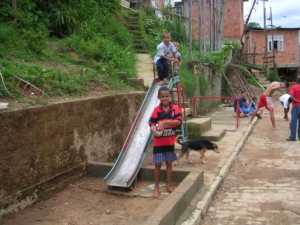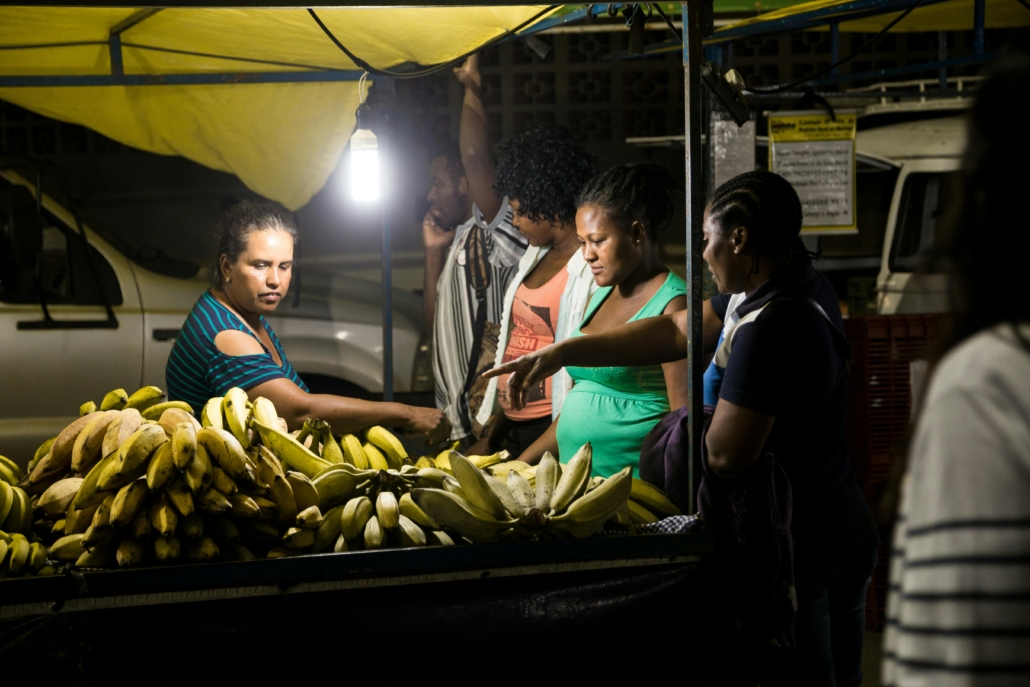 Since 2003, the Bolsa Família program has been working on poverty alleviation in Brazil. The program has helped 46 million Brazilian families by partnering with the World Bank. It has reduced Brazil’s poverty to 59 million from 67.7 million.
Since 2003, the Bolsa Família program has been working on poverty alleviation in Brazil. The program has helped 46 million Brazilian families by partnering with the World Bank. It has reduced Brazil’s poverty to 59 million from 67.7 million.
Hunger Reduction
With the provided cash offerings, many families who had previously suffered from hunger have food security. Last year, the Brazilian Ministry of Social Development and Assistance, Family and the Fight Against Hunger (MDS) gave $30 billion to needy families through the Bolsa Família.
Improved Health and Education
For years, youth mortality rates in Brazil remained high, mainly due to limited access to routine checkups and vaccinations. In response, the Bolsa Família program introduced conditional cash transfers, requiring families to take their children for regular medical visits to receive financial support. So far, more than eight million people have benefited from the initiative, which strongly emphasizes improving family health care.
Furthermore, the initiative has increased educational development with evidence of higher enrollment and academic successes from disadvantaged citizens. A prominent aim of Bolsa Família is to stop children from inheriting the poverty their parents endured by focusing funds toward advancing schooling. As a result, the school enrollment rate has increased by 5.5-6.5%. Similarly, the dropout rates declined by 0.4 and 0.5 points and the grade promotion rate increased by 0.4-0.5 points.
Women Empowerment
Career training and greater access to social assistance programs have opened new job opportunities for women and provided affordable child care services. Women make up 54% of Brazil’s conditional cash transfer program beneficiaries, an investment widely seen as one of the most effective ways to empower women. With increased autonomy, many can now make informed decisions about family planning, creating ripple effects that improve their long-term well-being.
Eliminating Child Labor
Since their consolidation into the Bolsa Família program, initiatives like Bolsa Escola, Bolsa Alimentação, Cartão Alimentação, Auxílio-Gás and the Child Labor Eradication Program have significantly contributed to reducing child labor in Brazil. In 2023, the government reinstated Bolsa Família, enhancing financial support to low-income families. Eligible households now receive approximately R$150 (about $30) per month for each child under age 6, bolstering assistance to vulnerable communities.
What’s Next?
The Bolsa Família program has had a global impact, serving as a model for other countries seeking to address the challenges of poverty and prevent its persistence. Looking ahead to 2030, the program aims to remove Brazil from the Hunger Map while significantly reducing nutritional insecurity across the country.
The goal is to increase disposable income to result in more grocery shopping, recognizing those needing protection and engaging the government to collaborate to eradicate hunger. The program’s lifespan has made a world of a difference to many lives for nearly 23 years and will continue its efforts of poverty alleviation in Brazil.
– Melody Aminian
Melody Aminian is based in Irvine, CA, USA and focuses on Good News for The Borgen Project.
Photo: Flickr

